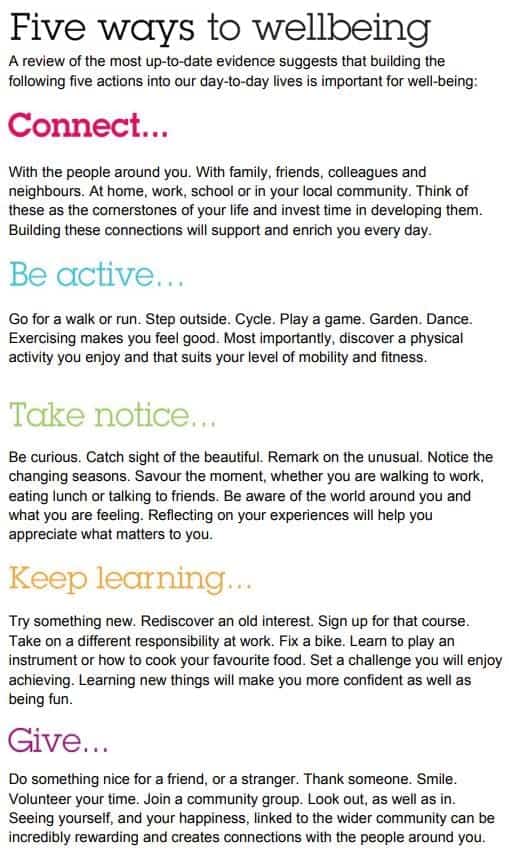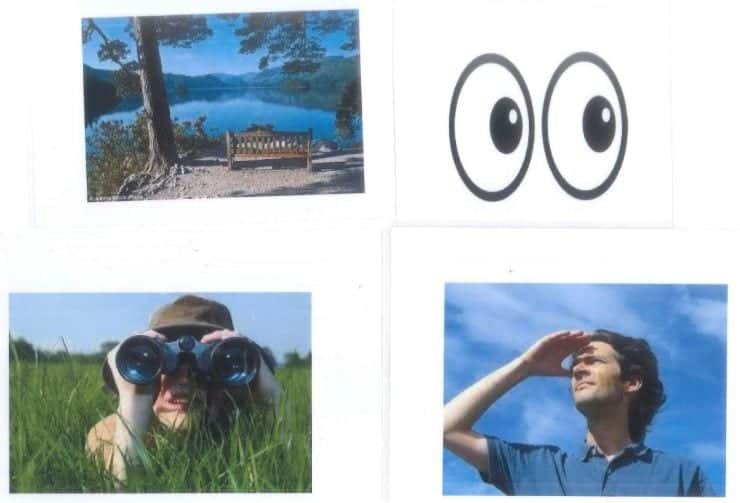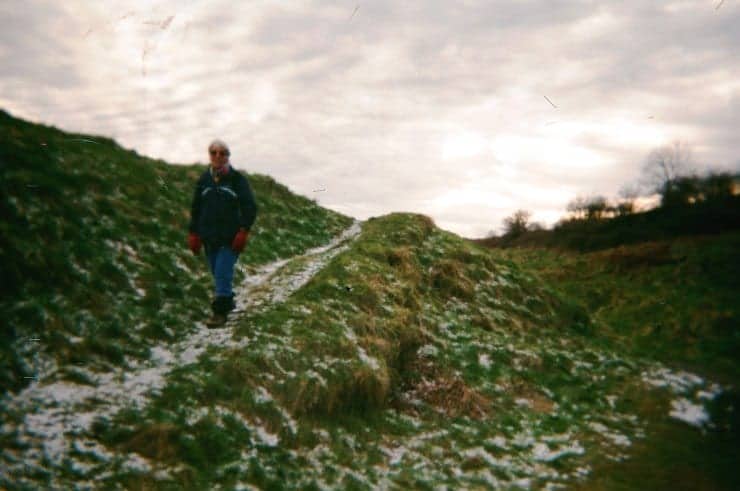Take notice: how to expand your world in 2019
“The world’s a much bigger place than what you’re looking at.”
When Marie walked into the Five Ways to Wellbeing session in December, she didn’t know she would contribute the most illuminating words of the session. In fact, when she arrived, she was overcome by anxiety and didn’t feel she could talk at all. She asked if she could just listen.
The Five Ways to Wellbeing covers the principles stemming from a 2008 New Economics Foundation investigation ‘Five Ways to Wellbeing’. It collates evidence from a nation-wide survey from which the NEF created a set of actions generally found to improve personal well-being. These were summarised as follows:

The session explores each of these, giving participants a set of ‘clue’ images from which to guess the ‘way to wellbeing’ action. Marie received her envelope of images:

Take Notice.
The image clues represent actions that convey sight and seeing because, generally speaking, our sense of sight is what we most rely on for taking in the world around us. Marie, however, doesn’t because she lost her sense of sight some time ago.
Marie listened to the description of each image: a man looking out, a woman looking through binoculars, a pair of eyes…
“It’s ‘take notice’,” she said.
Suddenly, the woman who had walked into the room too anxious to speak knew she had something important to say.
“Since losing my sight,” she began, “I’ve realised that the world is a much bigger place than what you’re looking at because you only look at what you choose to. When you can no longer see with your eyes, you look with your other senses and the world opens up with sounds, textures and smells that you don’t notice when you see it with your eyes.”
There followed a respectful silence in the room. Marie continued.
“It’s changed the way I see people. You see more of the good in people when you’re not looking at them.”
In today’s world, sight has become our most dominant sense and our most discriminatory. We make snap judgments of objects and people at a glance, and without noticing, we place value on that object or person based on those judgments. It is these predetermined values that block our potential to really take in the world around us. Using our eyes as our primary sensory organ has been our species’s making, providing us with a world fine in detail and rich in colour, from which we invent and innovate. Yet, it’s also become our undoing. Vision, as Marie explained, makes our world very small because the human experience has become confined to the lines and shapes that we see alone.
If you have already broken your new year’s resolution, or if you never had one in the first place, perhaps this could be a late starter: to practice seeing without looking. All you have to do is close your eyes and, slowly but surely, erase the lines from your world. What can you notice beyond?

